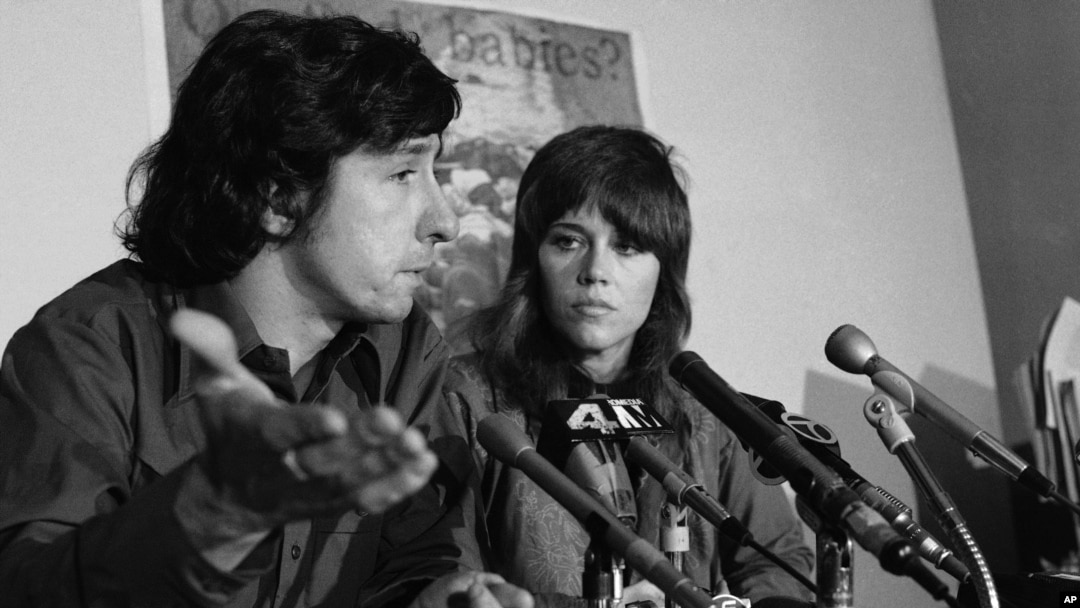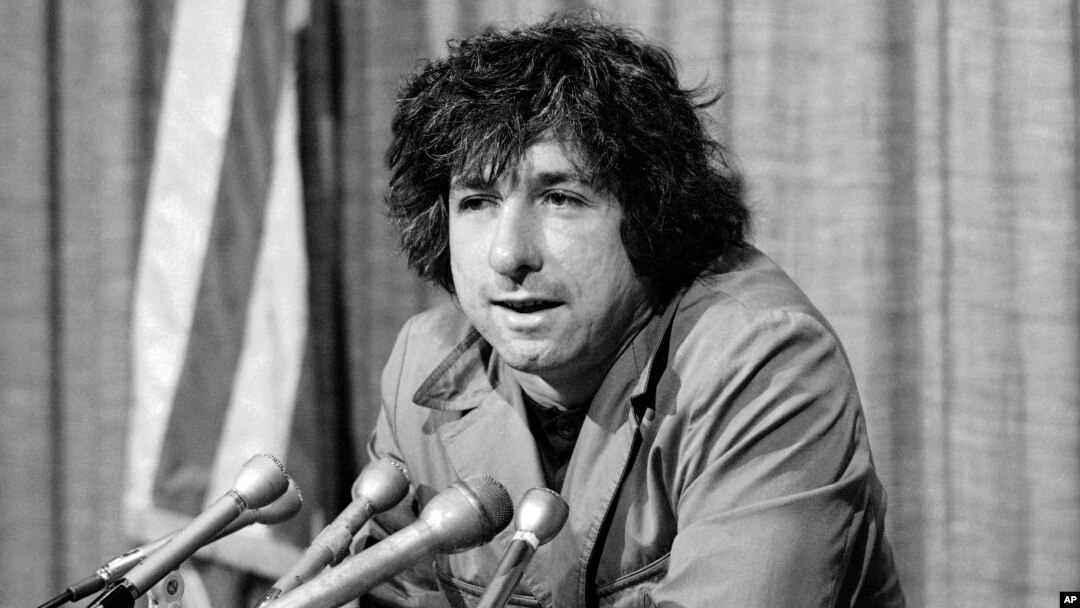Tom Hayden, the preeminent U.S. countercultural radical of the 1960s, has died at the age of 76.
Hayden was a leader of the student protests against the U.S. war in Vietnam. He was one of the country's most visible radicals, a founder of the anti-war Students for a Democratic Society and accused, but eventually cleared of charges that he was a ringleader of the violent protests at the 1968 Democratic National Convention in Chicago.
After the war ended, Hayden turned to traditional American political pursuits, serving 18 years in the California state legislature while sponsoring progressive measures on the environment, civil rights, education and public safety. He lost campaigns to be the California governor, the Los Angeles mayor and for a Los Angeles city council seat.
Before his death Sunday, Hayden had been suffering from heart problems and fell ill while attending the Democratic National Convention in July.
Hayden's 1960s were a decade of dissent, marked by the growing protests against the Vietnam war, civil rights sit-ins and marches and the tear-gassing of student protesters on American campuses and in the streets of major cities.

FILE - Tom Hayden talks as Jane Fonda listens at a news conference at the New York offices of the Center for Constitutional Rights, Jan. 2, 1973.
Non-conformist
In his memoir "Reunion," Hayden wrote, "Rarely, if ever, in American history has a generation begun with higher ideals and experienced greater trauma than those who lived fully the short time from 1960 to 1968."
It was during that time that Hayden drafted the Port Huron statement that led to the creation of Students for a Democratic Society. It was seen as a Utopian manifesto that extolled "participatory democracy" as an antidote the complacency and conformity of 1950s America.
In the oft-quoted first lines of the statement, Hayden wrote, "We are people of this generation, bred in at least modest comfort, housed now in universities, looking uncomfortably to the world we inherit."
Hayden met film star Jane Fonda at a peace rally and married her in 1973, a marriage that ended in divorce in 1990. In 1974, the two made a trip to North Vietnam in protest of the U.S. involvement in the war against Hanoi, to the derision of Americans who supported U.S. troops, and made a documentary film that critics labeled as Communist propaganda.
On one of several trips Hayden made to North Vietnam, he escorted home three U.S. prisoners of war Hanoi agreed to release as a gesture of "solidarity" with the American peace movement.


